Life
Sign up for our newsletter
We summarize the week's scientific breakthroughs every Thursday.
-
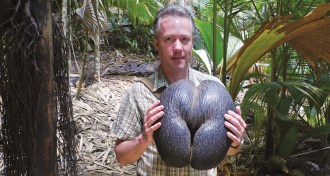 Plants
PlantsHow slow plants make ridiculous seeds
Coco de mer palms scrimp, save and take not quite forever creating the world’s largest seeds.
By Susan Milius -
 Animals
AnimalsLazy sunfish are actually active predators
Ocean sunfish were once thought to be drifting eaters of jellyfish. But they’re not, new research shows.
-
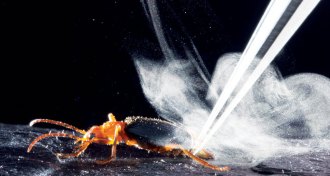 Animals
AnimalsBeetle’s toxic, explosive vapor explained
From a two-chambered gland in their rears, bombardier beetles unleash a toxic, blazing hot spray to defend themselves.
By Beth Mole -
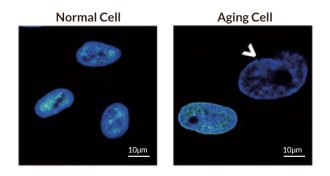 Genetics
GeneticsDNA disorganization linked to aging
Changes in the way that DNA is tightly packed in cells leads to mayhem that promotes the aging process.
-
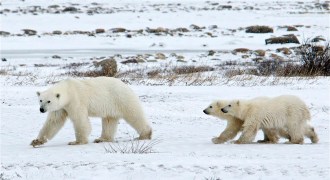 Animals
AnimalsClimate change revs up extinction risks
One in six species on the planet may face extinction if the global temperatures continue to rise.
By Beth Mole -
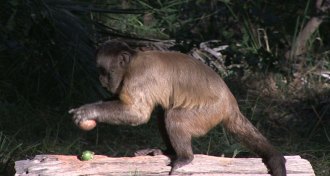 Animals
AnimalsRock-wielding monkeys make adjustments when cracking nuts
Videos show that monkeys carefully pound open nuts to avoid smashing kernels inside.
By Bruce Bower -
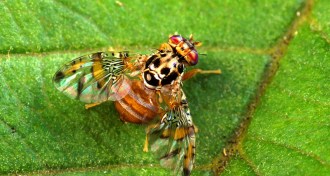 Plants
PlantsMedfly control methods were ready for pest’s influx
50 years ago, researchers prepared to greet Mediterranean fruit flies with sterile males.
-
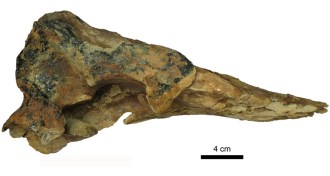 Animals
AnimalsRare fossils expand evolutionary history of sperm whales
A pygmy fossil unearthed in Panama reveals that the organ the whales use to produce sound and echolocate shrunk over time.
-
 Paleontology
PaleontologyThis dinosaur’s ride may have been a glide
A new dino called Yi qi may have taken to the skies with wings akin to those of pterosaurs and flying squirrels.
-
 Plants
PlantsA protein battle underlies the beauty of orchids
The petal-and-lip shape that draws pollinators to orchids results from a competition between two protein complexes, a new study finds.
-
 Ecosystems
EcosystemsJust 1 percent of Amazon’s trees hold half of its carbon
Roughly 1 percent of tree species in the Amazon rainforest account for half of the jungle’s carbon storage.
-
 Earth
EarthHidden water found deep beneath Antarctica desert valley
New imaging reveals liquid water network beneath Antarctica’s McMurdo Dry Valleys that could support microbial life.